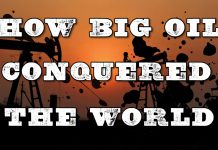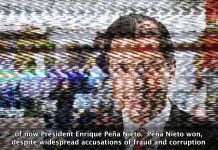In the realm of documentaries, “Aftermath: Unanswered Questions From 9/11” stands as a thought-provoking and contentious exploration of a topic that remains etched in the collective memory of the 21st century. This film peels back the layers of a narrative we thought we knew well—the tragic events of September 11, 2001. Directorial courage and a bold perspective are the hallmarks of this production, which delves into a series of alarming issues that were, at times, overshadowed by the mainstream media’s coverage of the 9/11 terrorist attacks.
The 9/11 attacks were a watershed moment in contemporary history, sending shockwaves around the globe. The mainstream media’s extensive coverage provided a snapshot of the tragedy, painting a somber and chilling portrait of the day’s events. However, “Aftermath” invites viewers to journey beyond the headlines, inviting us to question the official narrative and confront unsettling issues that have lingered in the shadows.
The film unfolds with a deliberate pace, creating an atmosphere of unease from the very beginning. The choice to use primarily firsthand accounts and expert interviews adds a layer of authenticity to the narrative. This documentary employs a skillful blend of archival footage, expert analysis, and interviews with individuals whose voices have largely been left out of the mainstream discourse.
One of the central themes explored in “Aftermath” is the series of unanswered questions that have persisted since that fateful day. The documentary does not claim to provide definitive answers, but it challenges viewers to engage with a plethora of puzzling issues. From the mysterious collapse of World Trade Center Building 7 to the apparent lapses in security and the peculiar behavior of certain individuals associated with the hijackers, the film raises concerns that have often been marginalized or overlooked.
The documentary’s strength lies in its ability to create a sense of urgency around these unresolved questions. It encourages viewers to critically assess the official explanations and the official investigations that followed the attacks. This isn’t just a passive retelling of history; “Aftermath” asks the audience to become active participants in the search for truth and accountability.
One of the most potent elements of the documentary is its unflinching examination of the numerous individuals and experts who have questioned the official narrative. It provides a platform for architects, engineers, journalists, and family members of 9/11 victims who harbor concerns about the events surrounding that day. Through their testimonies, viewers are exposed to a side of the story that remains largely untold in mainstream discourse.
“Atfermath” also delves into the phenomenon of the 9/11 Truth Movement—a loose coalition of individuals and organizations that have dedicated themselves to uncovering what they perceive as discrepancies and omissions in the official accounts. The film carefully scrutinizes their work, presenting the audience with various theories and counter-narratives. While some might view this as a controversial and even divisive aspect of the documentary, it’s essential to recognize that the film doesn’t endorse any particular theory. Instead, it seeks to illustrate the existence of an alternative perspective and emphasize the importance of open dialogue.
Of course, a documentary that revisits such a significant and emotionally charged event is bound to elicit strong reactions. “Aftermath” has not been without its fair share of criticism and skepticism, and it’s important to approach this film with an open mind and a critical eye. It doesn’t claim to be the definitive account of what happened on 9/11; rather, it is a call for a more comprehensive and transparent investigation.
In the realm of filmmaking, “Aftermath” is not without its cinematic flaws. The pacing can be slow at times, and the documentary’s nearly two-hour runtime might test the attention span of some viewers. However, this measured approach allows for a thorough exploration of the topics at hand, and the film’s structure ensures that the arguments put forth are presented in a logical and accessible manner.
“Atfermath” also succeeds in its choice of music and visuals. The haunting and evocative score adds depth to the emotional resonance of the documentary, while the careful selection of imagery helps to immerse viewers in the atmosphere of that fateful day.
In conclusion, “Aftermath: Unanswered Questions From 9/11” is a documentary that challenges the viewer’s perspective on a significant historical event. By presenting a range of unresolved issues and alternative viewpoints, it encourages us to question the official narrative and engage in critical thinking. While it may be a contentious and polarizing film, it provides an essential platform for discussions about accountability, transparency, and the search for truth. In a world where established narratives often go unquestioned, “Aftermath” serves as a reminder of the power of skepticism and the importance of seeking answers to the most pressing questions that history presents to us.

































